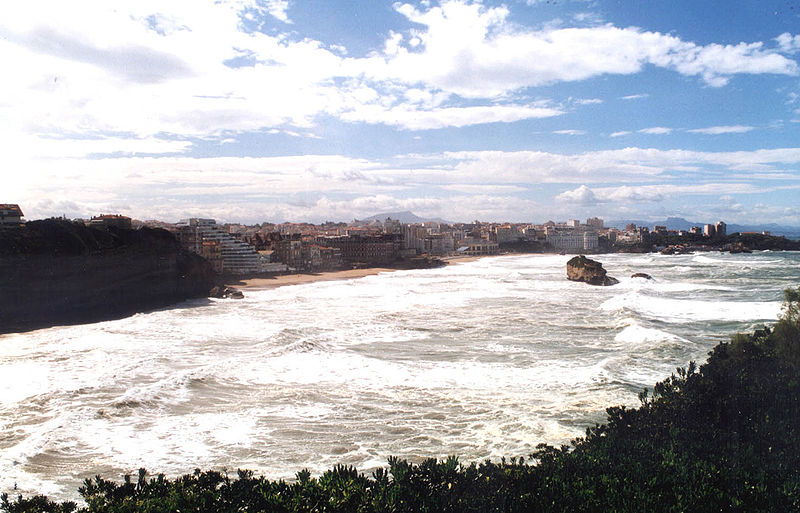|
Acción Española (magazine)
Acción Española (, ''Spanish Action'') or AE was a Spanish cultural association active during the Second Spanish Republic, meeting point of the ultraconservative and far right intellectual figures that endorsed the restoration of the Monarchy. It was also a political magazine of the same name. The group was heavily influenced by ''Action Française'' both in its name and its ideology.Stanley G. Payne, ''Spain's First Democracy: The Second Republic, 1931-1936'', 1993, p. 171 Constituted in October 1931, the cultural association was inaugurated on 5 February 1932,Eduardo González Calleja, ''Contrarrevolucionarios. Radicalización violenta de las derechas durante la Segunda República, 1931-1936'', 2011, pp. 51-52 following the founding of the journal on 15 December 1931. Formation AE began life in December 1931 as a journal organised by doctrinaire monarchists. It was edited by Ramiro de Maeztu. Drawing in followers of the former Prime Minister Antonio Maura and the ultraconservat ... [...More Info...] [...Related Items...] OR: [Wikipedia] [Google] [Baidu] |
Monarchism
Monarchism is the advocacy of the system of monarchy or monarchical rule. A monarchist is an individual who supports this form of government independently of any specific monarch, whereas one who supports a particular monarch is a royalist. Conversely, the opposition to monarchical rule is referred to as republicanism. Depending on the country, a royalist may advocate for the rule of the person who sits on the throne, a regent, a pretender, or someone who would otherwise occupy the throne but has been deposed. History Monarchical rule is among the oldest political institutions. The similar form of societal hierarchy known as chiefdom or tribal kingship is prehistoric. Chiefdoms provided the concept of state formation, which started with civilizations such as Mesopotamia, Ancient Egypt and the Indus Valley civilization. In some parts of the world, chiefdoms became monarchies. Monarchs have generally ceded power in the modern era, having substantially diminished since Worl ... [...More Info...] [...Related Items...] OR: [Wikipedia] [Google] [Baidu] |
Integralismo Lusitano
''Integralismo Lusitano'' (English: "Lusitanian Integralism") was a Portugal, Portuguese integralism, integralist political movement founded in Coimbra in 1914 that advocated Traditionalist conservatism, traditionalism but not conservatism. It was against parliamentary system, parliamentarism but favoured decentralization, national syndicalist, national syndicalism, the Catholic Church in Portugal, Catholic Church and the Kingdom of Portugal, monarchy. Its members included an amalgam of rightists, monarchists, Catholics and nationalists. Origin Lusitanian Integralism is a variant of integralism that evolved in Portugal, the term "Lusitania" being derived from the Latin term for the southern region of what is now Portugal. The movement was created to address the threats of anticlerical liberalism, socialism, populist and revolution. The movement drew inspiration from the French royalist movement ''Action française'' and it considered an authoritarian, nationalist and corpora ... [...More Info...] [...Related Items...] OR: [Wikipedia] [Google] [Baidu] |
Biarritz
Biarritz ( , , , ; also spelled ; ) is a city on the Bay of Biscay, on the Atlantic coast in the Pyrénées-Atlantiques department in the French Basque Country in southwestern France. It is located from the border with Spain. It is a luxurious seaside tourist destination known for the Hôtel du Palais (originally built for the Empress Eugénie ), its seafront casinos, and its surfing culture. Geography Biarritz is located in the Pyrénées-Atlantiques department in the Nouvelle-Aquitaine region. It is part of the arrondissement of Bayonne, adjacent to Bayonne and Anglet and from the border with Spain. The city is also in the traditional province of Labourd in the French Basque Country. Climate Biarritz has a temperate oceanic climate, Cfb in the Köppen climate classification. It is one of the wettest cities in Metropolitan France. Etymology In Basque, its name is Biarritz or Miarritze. Its current Gascon name is Biàrrits. The name for an inhabitant of the ci ... [...More Info...] [...Related Items...] OR: [Wikipedia] [Google] [Baidu] |
Ernesto Giménez Caballero
Ernesto Giménez Caballero (2 August 1899 – 14 May 1988), also known as Gecé, was a Spanish writer, diplomat, and pioneer of Fascism in Spain. Director and founder of the avant-garde magazine (1927–1932), his work has been categorized as being part of the Futurist and Surrealist movement, while Stanley G. Payne has described him as the Spanish Gabriele d'Annunzio. Education and military service He took the baccalaureate education at the Instituto San Isidro. Between 1916 and 1920 he took studies in ''Letras'' at the Central University (where he wrote for the Conservative journal ''Filosofía y Letras'' and helped to launch a "Group of Socialist Students", some of whose members would soon after establish the Spanish Communist Party), and then collaborated for a time at the Centro de Estudios Históricos before moving to the University of Strasbourg to work as lecturer in Spanish. Influenced by José Ortega y Gasset's critique of democracy, however, he became a nationalist ... [...More Info...] [...Related Items...] OR: [Wikipedia] [Google] [Baidu] |
Cortes Generales
The (; ) are the Bicameralism, bicameral legislative chambers of Spain, consisting of the Congress of Deputies (the lower house) and the Senate of Spain, Senate (the upper house). The Congress of Deputies meets in the Palacio de las Cortes, Madrid, Palacio de las Cortes. The Senate meets in the Palacio del Senado. Both are in Madrid. The Cortes are elected through universal, free, equal, direct and secret suffrage, with the exception of some senatorial seats, which are elected indirectly by the legislatures of the Autonomous communities of Spain, autonomous communities. The are composed of 615 members: 350 Deputies and 265 Senators. The members of the serve four-year terms, and they are representatives of the Spanish people. In both chambers, the seats are divided by constituencies that correspond with the Provinces of Spain, fifty provinces of Spain, plus Ceuta and Melilla. However, each island or group of islands within the Canary Islands, Canary and Balearic Islands, Bal ... [...More Info...] [...Related Items...] OR: [Wikipedia] [Google] [Baidu] |
